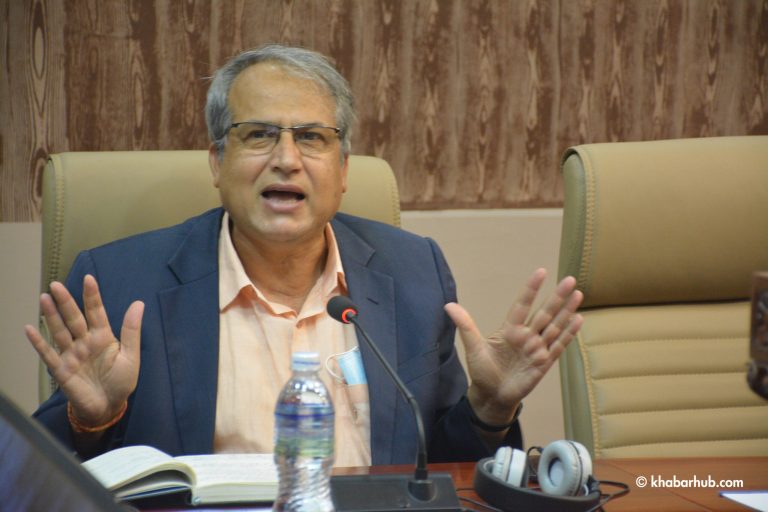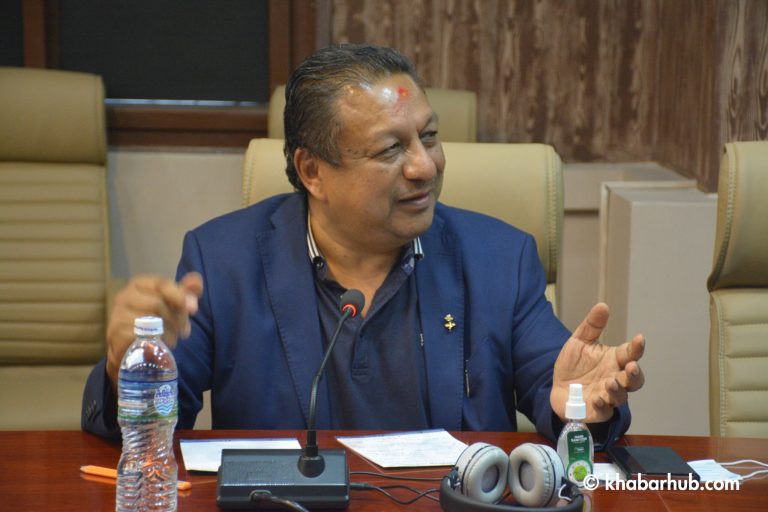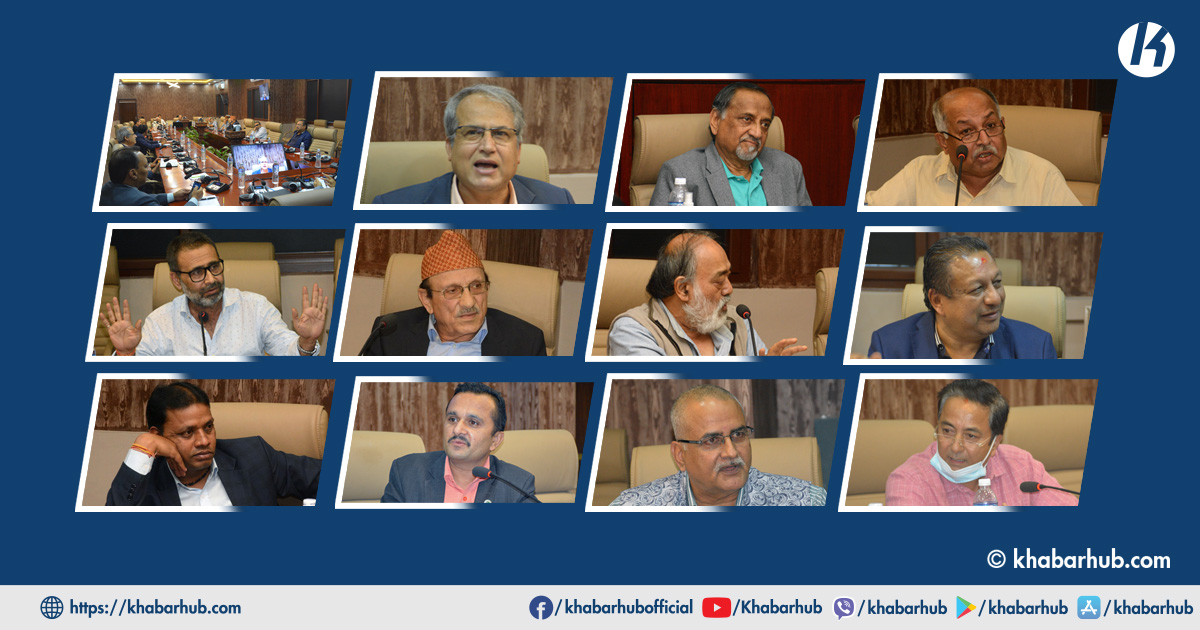KATHMANDU: At a time when a lot of hue and cry on the Millennium Challenge Corporation (MCC) has been made by a section of the political leaders, experts argue Nepal could see repercussions if it failed to ratify the Compact.
They were unanimous to say that fake and fallacious narratives and misinformation against MCC have to be countered.
The misinformation that the ratification of the MCC by the parliament meant joining the Indo-Pacific Strategy (IPS), they argued that the international community would see Nepal as incapable to handle grants.
Taking part in the “Khabarhub Debate” organized by Khabarhub in the capital Friday, they said that since there is no string attached to it, failure to ratify the Compact would create a negative opinion about Nepal internationally.
Political analyst Arun Kumar Subedi suggested Prime Minister Sher Bahadur Deuba table the Compact in the parliament and endorse it saying, “Without further delay, the parliament should endorse the MCC Compact by imposing development emergency in the country.”

Subedi argued that since it is an economic issue rather than political, failure to do so will be unfortunate for Nepal and the Nepali people. “Or else, people will start looking for an alternative to the current system.”
He labeled the ongoing street protests against MCC as a consequence of a “destructive mentality” and even criticized Nepali Congress youth leaders for remaining silent on the issue.
“NC’s reluctance on coming out clear has complicated the issue further,” Subedi said.
He wondered as to why Nepal’s communist leaders are creating a hue and cry in favor of China when it has not spoken a word against MCC.
Gyanendra Lal Pradhan, a hydro investor, said Nepal should not miss an economic opportunity like MCC at any cost.

“This will have a negative impact on Nepal’s development efforts,” Pradhan argued urging intellectuals and experts to speak when it comes to infrastructural development.
Foreign affairs expert, Gopal Thapa suggested an all-party meet to forge consensus on the issue and endorse it from the Parliament “or else the United Stated may not offer any aid or grant to Nepal in future.”
He also came down heavily on what he said: “so-called intellectuals” for making shoddy comments and extreme views about MCC.

Thapa suggested that a country like Nepal should not antagonize the United States and other donor countries. He criticized the protestors for their “act of stupidity”.
Human Rights activist Kapil Shrestha termed the protests as a sign of “extreme nationalism”. He said since there are no strings attached to MCC, and not a part of the Indo-Pacific Strategy, the parliament should not delay in endorsing it.

“People with little knowledge and failed communists are protesting it,” Shrestha said adding “Fallacious and fake information have to be countered accordingly.”
“The problem with MCC in Nepal is because of the transparency on the part of the United States,” Shrestha said.
Ganesh Mandal, a Madeshi activist and intellectual, said since MCC has come as a game-changer project, it should not be sent back.
“Only people having a criminal mindset are opposing it,” he added.

Former Ambassador Vijay Kanta Karna said all claims and arguments against MCC are baseless and that the ratification of the Compact will not infringe Nepal’s sovereignty.
“This is because of the geopolitical rivalry,” he claimed, adding that MCC has become a means for gaining political mileage.

Foreign Affairs expert Saroj Mishra termed the anti-MCC rhetoric as “ridiculous” asking, “Has China ever openly said that ratification of MCC in Nepal would pose threat to China?”
Mishra wondered as to why some Nepali leaders are more worried about China and suggested a direct dialogue between Nepal and the United States on the MCC Compact.

Binoj Basnyat, Major General (Retd) and Security Analyst said that extreme nationalist rhetoric would impact Nepal’s international relations.
“This is politicization in development,” he said, adding that the political behavior of the leaders has affected the country’s image and relations.

Stating that this is all because of a lack of balancing diplomatic seriousness, Basnyat said such protests would only push the country towards darkness.
Shailendra Guragain, an Energy Expert, dubbed the protests as a “communist narrative” because of which people are disillusioned.
Political analyst Devesh Jha concurred with Guragain saying that the protests and misinformation about MCC have disillusioned the Nepali populace.

Prakash Chandra Dulal, hydropower developer, termed the protests as “a communist narrative” based on misinformation and disinformation.
Chairman of Institute for Strategic and Social-Economic Research (ISSR), who chaired the session, held the government responsible for being immature while seeking answers about the MCC.












Comment